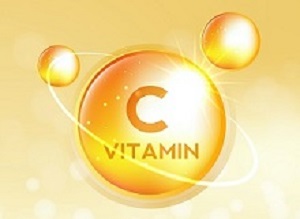Correspondent Justin Ward writes that a MedPage Today summation of the CITRIS-ALI study, quoted in MedicalBrief, was selective and calculated to "discredit Professor Paul Marik".
Thank you for your above article published on 20th January which I have just read. I would just like to point out a problem with your data source MedPage Today, as related to the statement below:
The science behind Ivermectin for COVID-19 continues to be debated. Writing in MedPage Today, Kristina Fiore notes that the FLCCC’s Marik is known for developing the HAT protocol for sepsis, which “hasn’t been without controversy”. It’s a combination of hydrocortisone, ascorbic acid (vitamin C) and thiamine. His group’s 2017 observational study of the protocol, published in CHEST, garnered excitement about the combination. But that hasn’t been borne out in subsequent trials, including the ADRENAL study (which looked at steroids alone), the CITRIS-ALI study (which looked at vitamin C alone) and the VITAMINS trial, which randomised patients to the full protocol but was open-label. The VICTAS study has completed enrolment but hasn’t yet reported data.
I have attached the CITRIS-ALI study which is referred to above. In the conclusion of this study is the following statement:
Conclusion and relevance: In this preliminary study of patients with sepsis and ARDS, a 96-hour infusion of vitamin C compared with placebo did not significantly improve organ dysfunction scores or alter markers of inflammation and vascular injury. Further research is needed to evaluate the potential role of vitamin C for other outcomes in sepsis and ARDS.
This gives the impression that the study is a complete failure and that vitamin C does nothing but reading further we see later:
Vitamin C–infused patients exhibited a significant reduction in 28-day all-cause mortality, although the P value was not adjusted for multiple comparisons. The median observation time was 28 days (interquartile range, 15-28 days) for the vitamin C group and 28 days (interquartile range, 5-28 days) for the placebo group.
Secondary Outcomes
Forty-three of the 46 prespecified secondary outcomes were not significantly different between the vitamin C group and the placebo group (Table 2). In exploratory analyses that did not adjust for multiple comparisons, 3 secondary outcomes were significantly different between groups. At day 28, mortality was 46.3% (38/82) in the placebo group vs 29.8% (25/84) in the vitamin C group (χ2 = 4.84; P = .03; between-group difference, 16.58% [95% CI, 2% to 31.1%]) (Figure 3). The Kaplan-Meier survival curves for the 2 groups were significantly different by the Wilcoxon test (χ 2 1 = 6.5; P = .01)
So although vitamin C did not improve organ dysfunction scores or markers of inflammation it just happened to save lives. Do you think this point should perhaps have been mentioned under the summary on page one?
It is this kind of selective reporting that has been used to discredit Professor Paul Marik and others. So really there is not much controversy about his HAT protocol, the cornerstone of which is treatment with vitamin C.
Unfortunately, most reporters continue to report this myth as they only read the summary and not the whole paper.
Kind Regards
Justin Ward
See also MedicalBrief archives:
[link url="https://www.medicalbrief.co.za/archives/fact-file-making-sense-of-the-ivermectin-controversy/"]Fact File: Making sense of the Ivermectin controversy[/link]
[link url="https://www.medpagetoday.com/infectiousdisease/covid19/90552?"]Full MedPageToday report (Restricted access)[/link]

